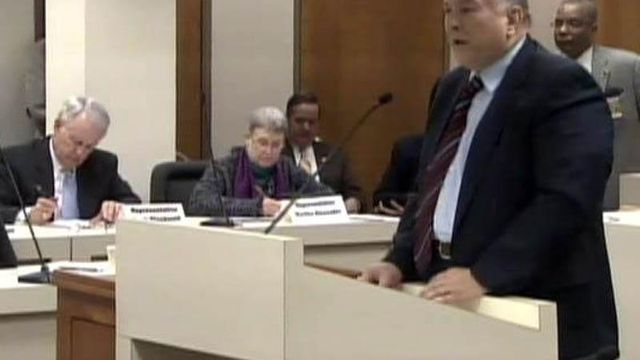State House panel OKs challenge to health reform law
Newly installed Republicans leaders in the General Assembly quickly forged ahead with their agenda on Thursday, pushing legislation through a committee to weaken the year-old federal health care reform law.
Posted — UpdatedThe bill, which could before the full House as early as next week, also would require Democratic Attorney General Roy Cooper to defend the law in court if it is enacted. Cooper has refused to join litigation by other states to challenge the law's constitutionality.
Democrats pleaded during two hours of vigorous debate for more time to examine the bill and allow members of the public to comment on it. Several committee members questioned spending money on a lawsuit when the state faces a projected $3.7 billion deficit.
"We all know the end game here. So, if it takes an extra week or two to get the bill passed the way that you all want it passed and for Roy Cooper to send an e-mail (to join the multi-state lawsuit), what is the difference?" said Rep. Deborah Ross, D-Wake.
Rep. John Blust, R-Guilford, said Congress didn't waste time last year in voting to approve health reform, so there's no reason for the House to wait now for more background on the bill. Also, he said, the legislation sends a message that North Carolina won't be pushed around by the federal government.
"If (health reform) is upheld in the end and the federal government can mandate North Carolinians to buy a certain product, what can't the federal government do, and do we no longer have limited government? Blust said.
Challenging the health care law was one of 10 items GOP legislative candidates put on their list of campaign promises last fall.
Rep. Tim Moore, R-Cleveland, said the majority of North Carolina residents dislike the individual mandate, and it was up to lawmakers to exempt them from it.
"We are aware of what the business of the people needs to be, and we have made it clear that we are going to get that business done," Moore said. "If something is not done about this overly intrusive federal legislation, it's going to cost us more money than we can ever imagine."
Still, Democrats argued that North Carolina doesn't need to get involved in the lawsuit over the health law since the state ultimately will have to abide by a court's decision whether the law is constitutional or not. They also said challenging the so-called "individual mandate" requiring health coverage could undo many aspects of the law that constituents like, such as allowing young adults to remain on their parents' policies, covering more drug expenses for seniors and preventing insurance companies from denying coverage for a pre-existing medical problem.
"I cannot believe that we are opening this session, in the middle of the worst recession since the Great Depression, (and) we are talking about this issue rather than about how to put our people back to work and move our state forward," said Rep. Jennifer Weiss, D-Wake.
House Majority Leader Paul Stam, one of the bill's sponsors, refuted every argument against the legislation. It won't cost the state anything, he said, and the individual mandate isn't similar to requirements that drivers have automobile insurance or that seniors enroll in Medicare.
"(Medicare is required) only if you work," said Stam, R-Wake. "(The individual mandate) is required if you breathe."
• Credits
Copyright 2024 by WRAL.com and the Associated Press. All rights reserved. This material may not be published, broadcast, rewritten or redistributed.






